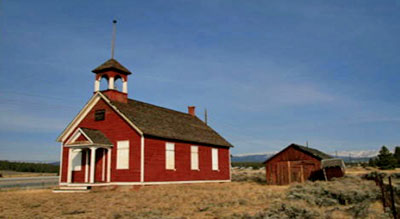
by Gaye Levy
Contributor
September 4, 2012
from
ActivistPost Website
|
Gaye Levy, the SurvivalWoman,
grew up and attended school in the Greater Seattle area. After
spending many years as an executive in the software industry, she
started a specialized accounting practice offering contract CFO work
to emerging high tech and service industries.
She has now abandoned city life
and moved to a serenely beautiful rural area on an island in NW
Washington State.
She lives and teaches the
principles of a sustainable, self-reliant and stylish lifestyle
through emergency preparation and disaster planning through her
website at
BackdoorSurvival.com.
SurvivalWoman speaks her mind
and delivers her message with optimism and grace, regardless of
mayhem swirling around us. |

The year is 2018. Looking back, everything in
the good old days of 2011 and 2012 seem like a distant memory. And yeah, at
the time those good old days did not seem so good.
But now they do. Why?
The world and society as we knew it are long
gone and we are left with a new world, a world without conveniences, without
power and without a consistent and reliable food supply.
What I have described above, in my own words, is the scenario described in a
new free eBook written by Todd Sepulveda, the chief editor at the
Prepper Website.
In his book, titled “Education
After The Collapse”, Todd describes a fictional community surviving in
the aftermath of an economic collapse. It is not a pretty picture and most
certainly it will make you want to sit back and think (as well as ratchet up
the preps more than just a little bit.)
But his intent is not to scare and not to create panic.
Rather, with this
brief introduction, the intent is to set you on a track for thinking about
an aspect of prepping you rarely hear about: the education of our
children and the leaders of the next generation.
School When There Is
No Classroom
Using his background and passion as an educator, Todd writes about teaching
and puts it in the context of the old days - not unlike
Laura Ingalls
in her series of books titled
Little House on the Prairie.
Back then traditional schoolhouses were few and
far between. They were predominately in the cities and towns and only
randomly scattered in rural communities. There were no electronics, no
calculators, and no cyberspace and Internet to use for research purposes.
The schoolhouse was more likely the kitchen table, with Mom and Dad pitching
in to teach their children and loved ones the basics of reading, math and
science. And that is where this eBook shines: as a tool for helping you
prepare for a possible time when a traditional school is not available to
educate our children.
In Education After the Collapse,
you will be reminded that different children - and people for that matter -
have different capacities and styles of learning. That said, within the
scope of those differences, teaching children to solve problems and think
critically is probably the most important lesson of all.
In 45 pages (including the appendix),
suggestions are provided for embracing project based learning regardless of
individual learning capacities and maturities.
Quite remarkable, if you ask me. After all, when is the last time your local
school district even mentioned this?
The Final Word
Please do not think this eBook is just for families.
The first section, alone, describing a fictional
community after the collapse is worthy of a download (which is 100% free by
the way). I read that and was immediately taken in to the future - a future
that may never happen but is still within the realm of probability.
But even more important, if you care about our world and you care about
society, you will want to read the rest of Education After the Collapse.
And
after reading it? You just might - like me - want to stock up on some
textbooks, paper, writing materials and flash cards so that you will have
them for the children of the unprepared - if and when the time comes.
For more information, be sure to visit the website
Ed That Matters and download
your own free copy of
Education After The Collapse.

